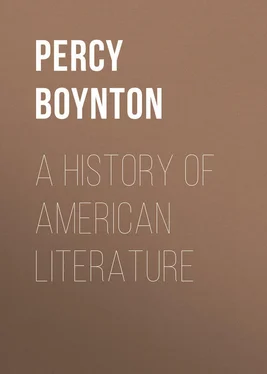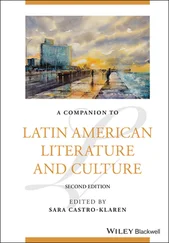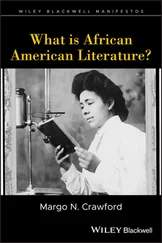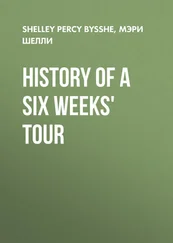Percy Boynton - A History of American Literature
Здесь есть возможность читать онлайн «Percy Boynton - A History of American Literature» — ознакомительный отрывок электронной книги совершенно бесплатно, а после прочтения отрывка купить полную версию. В некоторых случаях можно слушать аудио, скачать через торрент в формате fb2 и присутствует краткое содержание. Жанр: foreign_antique, foreign_prose, на английском языке. Описание произведения, (предисловие) а так же отзывы посетителей доступны на портале библиотеки ЛибКат.
- Название:A History of American Literature
- Автор:
- Жанр:
- Год:неизвестен
- ISBN:нет данных
- Рейтинг книги:4 / 5. Голосов: 1
-
Избранное:Добавить в избранное
- Отзывы:
-
Ваша оценка:
- 80
- 1
- 2
- 3
- 4
- 5
A History of American Literature: краткое содержание, описание и аннотация
Предлагаем к чтению аннотацию, описание, краткое содержание или предисловие (зависит от того, что написал сам автор книги «A History of American Literature»). Если вы не нашли необходимую информацию о книге — напишите в комментариях, мы постараемся отыскать её.
A History of American Literature — читать онлайн ознакомительный отрывок
Ниже представлен текст книги, разбитый по страницам. Система сохранения места последней прочитанной страницы, позволяет с удобством читать онлайн бесплатно книгу «A History of American Literature», без необходимости каждый раз заново искать на чём Вы остановились. Поставьте закладку, и сможете в любой момент перейти на страницу, на которой закончили чтение.
Интервал:
Закладка:
Three weeks – ye gods! – nay, three long years it seems
Since roast beef I have touched, except in dreams,
In sleep, choice dishes to my view repair,
Waking, I gape and champ the empty air, —
On neighbouring isles uncounted cattle stray,
Fat beeves, and swine, an ill-defended prey —
These are fit victims for my noonday dish,
These, if my soldiers act as I would wish,
In one short week should glad your maws and mine;
On mutton we will sup – on roast beef dine.
Sometimes it is full of the hate which war always engenders. Freneau wrote no more bitterly about the king, Lord North, and the leading generals in active service against the colonists than did Jonathan Odell – the foremost Tory satirist – about Washington and his associates. As the war went on, and the likelihood of American success became stronger, Freneau’s tone softened, as he could well afford to have it, and in such a product as “The Political Balance” he wrote with nothing more offensive than the mockery of a rather ungenerous victor. This poem, characterized by well-maintained humor, is one of the best of its kind. It represents Jove as one day looking over the book of Fate and of coming to an incomplete account of Britain, for the Fates had neglected to reveal the outcome of the war. In order to find out for himself, he directs Vulcan to make an exact model of the globe, borrows the scales from Virgo, and plans to foretell the future by setting the mother country on one side and the States on the other. When, after many difficulties, the experiment is tried, of course the States overbalance the little island. Then, to make sure, he adds the foreign dominions on Britain’s side,
But the gods were confounded and struck with surprise,
And Vulcan could hardly believe his own eyes!
For (such was the purpose and guidance of fate)
Her foreign dominions diminish’d her weight —
By which it appeared, to Britain’s disaster,
Her foreign possessions were changing their master.
Then as he replac’d them, said Jove with a smile —
“Columbia shall never be rul’d by an isle —
But vapours and darkness around her shall rise,
And tempests conceal her a while from our eyes;
“So locusts in Egypt their squadrons display,
And rising, disfigure the face of the day;
So the moon, at her full, has a frequent eclipse,
And the sun in the ocean diurnally dips.
“Then cease your endeavors, ye vermin of Britain —
(And here, in derision, their island he spit on)
’T is madness to seek what you never can find,
Or think of uniting what nature disjoin’d;
“But still you may flutter awhile with your wings,
And spit out your venom, and brandish your stings,
Your hearts are as black, and as bitter as gall,
A curse to yourselves, and a blot on the Ball.”
After the successful completion of the war it was only natural that Americans in their rejoicing should imagine the glorious future that awaited their new independence. The more vivid their imaginations were, the more splendid were the prophecies they indulged in. As we read over the records of their lofty hopes we are reminded of commencement oratory; and the likeness is not unreal, for these post-Revolution poets were in fact very like eager college graduates, diploma in hand, looking forward to vague but splendid careers. It was in these poems too that the germs of Fourth of July oratory first took root – the oratory described by James Fenimore Cooper in his “Home as Found” (chap. xxi):
There were the usual allusions to Greece and Rome, between the republics of which and that of this country there exists some such affinity as is to be found between a horse-chestnut and a chestnut horse, or that of mere words; and a long catalogue of national glories that might very well have sufficed for all republics, both of antiquity and of our own time. But when the orator came to speak of the American character, and particularly of the intelligence of the nation, he was most felicitous, and made the largest investments in popularity. According to his account of the matter, no other people possessed a tithe of the knowledge, or a hundredth part of the honesty and virtue of the very community he was addressing; and after laboring for ten minutes to convince his hearers that they already knew everything, he wasted several more in trying to persuade them to undertake further acquisitions of the same nature.
These elephantine poems were written each in several “books,” to each one of which was prefixed an outline which, in the language of the day, was called “the argument.” Here is a part of the outline for Book VII of Timothy Dwight’s “Greenfield Hill” (1794):
Happiness of U. S. contrasted to Eastern Despotism. Universal Prevalence of Freedom. Unfortified, and therefore safe, state of U. S. Influence of our state of Society on the Mind. Public Property employed for the Public Benefit. Penal Administrations improved by Benevolence. Policy enlarges its scope. Knowledge promoted. Improvements in Astronomical and other Instruments of Science. Improvements of the Americans, in Natural Philosophy – Poetry – Music – and Moral Science. State of the American Clergy. Manners refined. Artificial Manners condemned. American Women. Cultivation advanced. Other Nations visit this country, and learn the nature, and causes, of our happiness. Conclusion.
And here is a part of the argument to Book IX of Joel Barlow’s “Columbiad,” in which he demonstrates that the present government of America is a culmination of all human progress:
… the ancient and modern states of the arts and of society, Crusades, Commerce, Hanseatic League, Copernicus, Kepler, Newton, Galileo, Herschel, Descartes, Bacon, Printing Press, Magnetic Needle, Geographic Discoveries, Federal System in America.
Freneau had shared all this prophetic enthusiasm, and had expressed it even before the war, partly in an actual commencement poem on “The Rising Glory of America” and partly in a series of eighteen “Pictures of Columbus.” Just after graduation he had written:
I see, I see
A thousand Kingdoms rais’d, cities and men
Num’rous as sand upon the ocean shore;
Th’ Ohio then shall glide by many a town
Of note; and where the Mississippi stream
By forests shaded now runs weeping on,
Nations shall grow, and States not less in fame
Than Greece and Rome of old; we too shall boast
Our Alexanders, Pompeys, heroes, kings,
That in the womb of time yet dormant lye
Waiting the joyful hour of life and light.
After the war, however, he did not rejoin the increasing choir who were singing this kind of choral. His most interesting bit of prophecy, which must have seemed to his contemporaries to be a piece of the airiest fancy, has been amazingly verified more than a century after he wrote it. This is “The Progress of Balloons,” written in the jaunty tone of “The Political Balance”:
The stagemen, whose gallopers scarce have the power
Through the dirt to convey you ten miles in an hour,
When advanc’d to balloons shall so furiously drive
You’ll hardly know whether you’re dead or alive.
The man who at Boston sets out with the sun,
If the wind should be fair, may be with us at one,
At Gunpowder Ferry drink whiskey at three
And at six be at Edentown, ready for tea.
(The machine shall be order’d, we hardly need say,
To travel in darkness as well as by day)
At Charleston by ten he for sleep shall prepare,
And by twelve the next day be the devil knows where.
Интервал:
Закладка:
Похожие книги на «A History of American Literature»
Представляем Вашему вниманию похожие книги на «A History of American Literature» списком для выбора. Мы отобрали схожую по названию и смыслу литературу в надежде предоставить читателям больше вариантов отыскать новые, интересные, ещё непрочитанные произведения.
Обсуждение, отзывы о книге «A History of American Literature» и просто собственные мнения читателей. Оставьте ваши комментарии, напишите, что Вы думаете о произведении, его смысле или главных героях. Укажите что конкретно понравилось, а что нет, и почему Вы так считаете.











